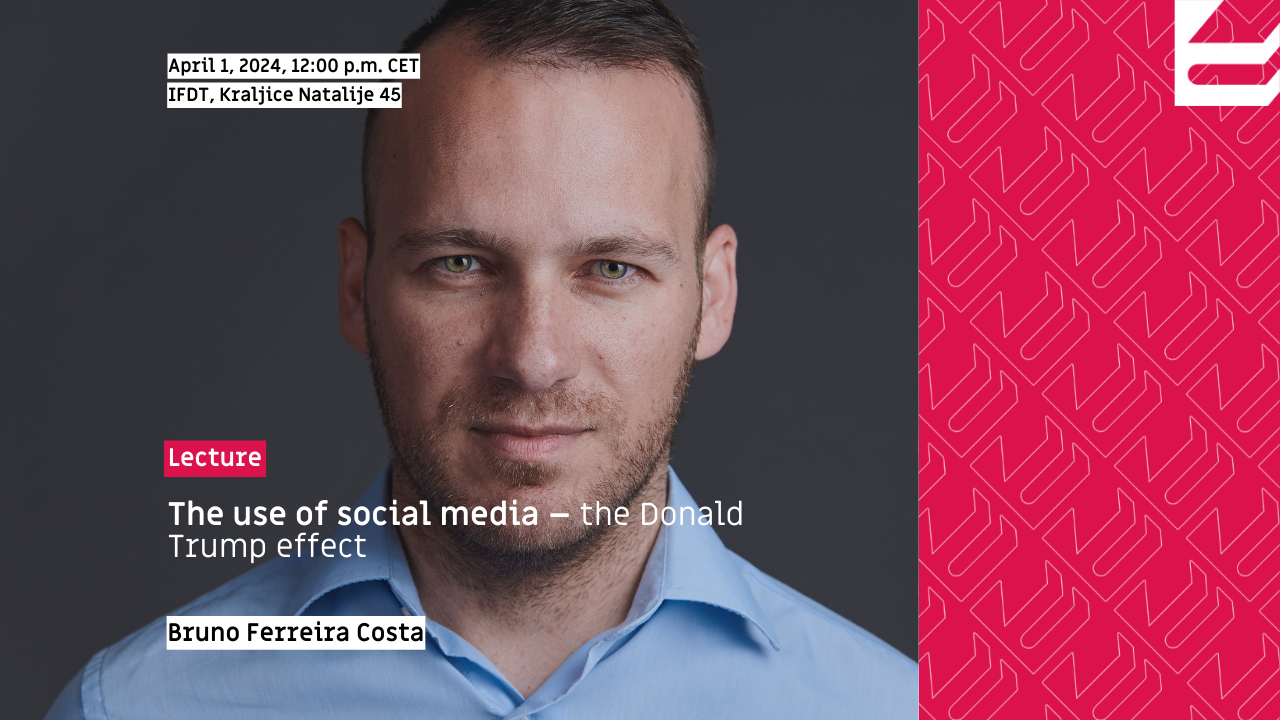
[LECTURE] Bruno Ferreira Costa – The use of social media – the Donald Trump effect (DigiLab)
The current context of political communication has generated a multiplication of analyses of the use of social networks as a fundamental platform for transmitting political messages. Today, social networks are a privileged stage for political debate and citizen political participation.
This lecture focuses on the study of the use of social media by Donald Trump, elected President of the United States in 2016. The ability to mobilize through social media allowed Trump to break through traditional communication models and ride the wave of popular indignation through the digital world. Is populism adapting better to new forms of communication? We set out to reflect on this issue using two central platforms: Facebook and Twitter.
Bruno Ferreira Costa completed his PhD in Social Sciences, specializing in Political Science in 2015 (University of Lisbon). He holds a master’s degree (2009) and a bachelor’s degree (2006) in Political Science from the Instituto Superior de Ciências Sociais e Políticas. His academic career has earned him two scientific awards. He is an Assistant Professor at the University of Beira Interior and a researcher at Praxis – Center for Philosophy, Politics and Culture. He has published several articles as an author and co-author in specialized journals. He is the author of two books, editor of an international book, and author of seven book chapters in the field of Political Science.
He holds the Jean Monnet Chair “POLMEDIA_EU – Political Systems, Political Participation and the Media in the EU” and led the research project “The composition and impact of liberal governments in the context of the European Union”.
Professor Costa works in the area(s) of Social Sciences, with an emphasis on Political Science. In his Ciência Vitae CV, the most frequent terms used to contextualize his scientific, technological and artistic-cultural production are: Abstention; First and second order elections; Electoral participation; Political participation; Political system; Democracy; Activism; Representation; Political parties; Political communication.
